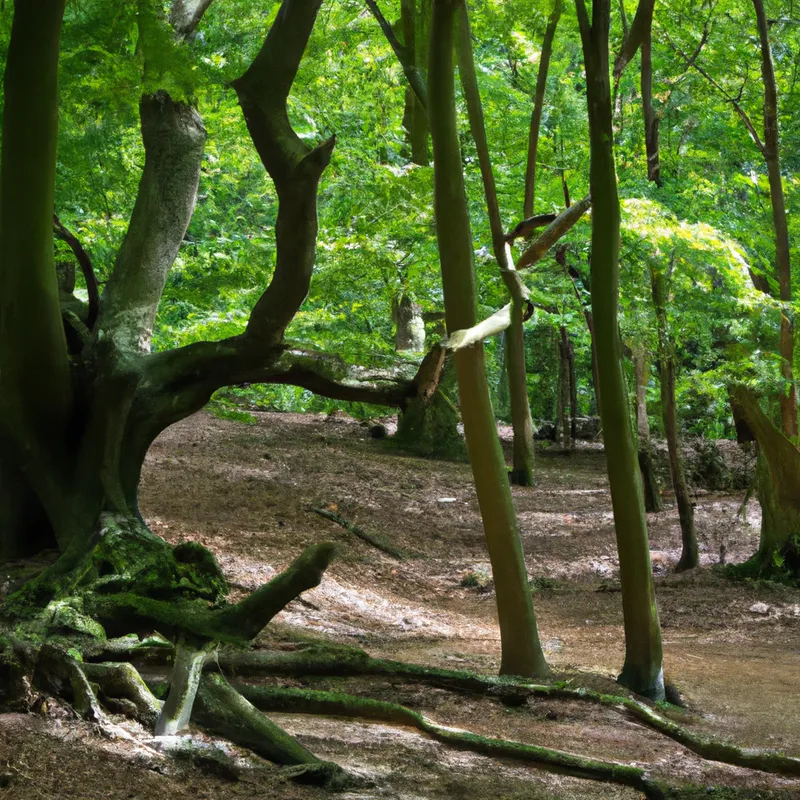Connect Nature and Wellness: Ecotherapy Insights
The Historical Roots of Ecotherapy: Ancient Practices and Modern Applications
Ecotherapy, or nature therapy, connects people with nature for mental health benefits. This practice has roots in ancient traditions. Today, it has evolved into a modern therapeutic approach. Exploring its history and applications reveals its profound impact on well-being.
Ancient Practices: Healing with Nature
For centuries, cultures worldwide have recognized nature’s healing power. Ancient civilizations sought solace and rejuvenation in nature.
Indigenous Wisdom
Indigenous peoples utilized their natural surroundings for healing. They view the earth as alive and spiritually significant. For example, Native American tribes honor the land through rituals. These rituals involve spending time outdoors and connecting with the environment.
Greek and Roman Influences
The Greeks and Romans acknowledged nature’s therapeutic qualities. Ancient Greek philosophers like Hippocrates recommended fresh air and sunlight to treat ailments. They understood that physical health and mental clarity flourished in natural settings. Roman gardens provided lush spaces for relaxation and reflection.
Eastern Philosophies
In Eastern cultures, nature plays a central role in holistic health practices. Traditional Chinese Medicine (TCM) emphasizes balance between humans and their environment. Practices like Tai Chi and Qi Gong often occur outdoors, integrating movement with nature. Japanese Zen gardens promote mindfulness and tranquility through their design.
Modern Applications: Ecotherapy Today
Today, ecotherapy blends ancient wisdom with contemporary psychology. Therapists incorporate natural settings into their practices to enhance mental health.
Nature-based Therapy
Nature-based therapy includes structured activities in natural environments. Therapists guide clients through hikes, gardening, or wilderness experiences. These activities foster connections to nature while addressing mental health issues. Research shows that spending time outdoors reduces anxiety and depression.
Forest Bathing
Originating in Japan, forest bathing (Shinrin-yoku) encourages immersion in the forest atmosphere. This practice involves slow walks among trees, focusing on sensory experiences. Studies indicate that forest bathing lowers cortisol levels and boosts mood. It helps individuals disconnect from technology and reconnect with surroundings.
Eco-therapy Programs
Various programs now offer ecotherapy as a formal therapeutic approach. Some mental health clinics include outdoor sessions in their treatment plans. These programs combine talk therapy with nature activities, creating a holistic healing environment.
Tips for Incorporating Ecotherapy into Your Life
You don’t need to be a trained therapist to benefit from ecotherapy. Here are simple ways to integrate nature into your routine.
1. Start Small
Spend a few minutes outdoors each day. Whether it’s a walk in the park or sitting in your backyard, start small. Notice the sounds, smells, and sights around you. Gradually increase your outdoor time as you become comfortable.
2. Engage Your Senses
Engage your senses when you’re outside. Feel the grass under your feet or the breeze on your skin. Listen to birds singing or leaves rustling. This practice enhances your connection to nature and promotes mindfulness.
3. Create a Nature Ritual
Establish a regular nature ritual that resonates with you. This could be a weekly hike, daily meditative walks, or gardening. Rituals create consistency and deepen your relationship with nature.
Benefits of Ecotherapy
Engaging with nature offers numerous mental and physical health benefits. Here are key advantages of incorporating ecotherapy into your life.
Improved Mental Health
Research shows that spending time in nature alleviates anxiety and depression. Nature acts as a natural stress reliever. It promotes feelings of calm and happiness.
Enhanced Focus and Creativity
Time spent outdoors boosts concentration and creativity. Studies indicate that nature exposure enhances cognitive function. A simple walk in the park can lead to clearer thinking and innovative ideas.
Strengthened Physical Health
Ecotherapy encourages physical activities like hiking or gardening. These activities improve overall fitness and boost mood. Physical and mental health often go hand in hand, fostering holistic well-being.
Conclusion
Ecotherapy has deep historical roots, reflecting humanity’s long-standing connection with nature. From ancient rituals to modern practices, it continues to evolve. Understanding its history helps us appreciate its value today. Incorporating nature into our lives enhances mental health, boosts creativity, and promotes overall well-being. Embrace nature’s healing power and allow it to transform your life.
Below are related products based on this post:
FAQ
What is ecotherapy and how does it benefit mental health?
Ecotherapy, also known as nature therapy, connects individuals with nature to enhance their mental health. Engaging with natural environments has been shown to alleviate anxiety and depression, acting as a natural stress reliever that promotes calmness and happiness.
What ancient practices influenced the development of ecotherapy?
Ecotherapy has its roots in various ancient practices, including Indigenous rituals that honor the earth, Greek and Roman philosophies that recognized the therapeutic qualities of nature, and Eastern holistic health practices that integrate movement with natural settings. These traditions emphasize the healing power of nature and have shaped modern ecotherapy approaches.
How can someone incorporate ecotherapy into their daily life?
Incorporating ecotherapy into daily life can be simple and rewarding. Start by spending a few minutes outdoors each day, engaging your senses with the environment. You can also create a nature ritual, such as weekly hikes or daily meditative walks, to deepen your connection with nature and enhance your overall well-being.















Post Comment